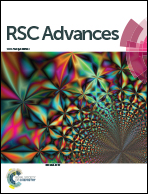Acetylation of BLM protein regulates its function in response to DNA damage
Abstract
Bloom syndrome is an autosomal recessive disease with phenotypes of cancer predisposition and premature aging caused by mutations of the blm gene. BLM belongs to the RecQ DNA helicase family and functions in maintaining genomic stability. In this study, we found that several lysine residues of BLM were acetylated in cells. The dynamic acetylation levels of BLM were regulated by CBP/p300 and SIRT1. We further identified that five lysines, K476, K863, K1010, K1329, and K1411, are the major acetylation sites. Treating cells with different DNA damage agents found that acetylation of BLM was different in response to etoposide and hydroxyurea, suggesting that BLM acetylation may have multiple functions in DNA repair.



 Please wait while we load your content...
Please wait while we load your content...